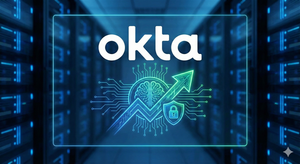Can Decentralization Give Internet Users More Privacy and Security?
DALLAS, TX / ACCESSWIRE / December 29, 2021 / With over 50% of Internet users more concerned about online privacy in 2019 than they were in 2018, investing in technology designed to increase their security may be a solution. One company, Handshake.org, a decentralized naming and certificate authority, believes that decentralization will make the Internet secure, resistant to censorship and seizures, and owned by individuals instead of corporations. To that end, they have created technology they believe will change the Internet as we know it.
Centralization: One Potential Issue with the Internet
Handshake explains that the services of the Internet have become more centralized over the past twenty years, a development that contrasts with its original decentralized version. In the beginning, blogs were standardized and gradually became more complex on social media platforms. Email used to be relatively simple and has evolved into bigger names, like Google's Gmail. Centralization, then, has impacted the Internet and contributed to its differences today.
Handshake states that centralization itself was created in part out of a need to manage spam, griefing (intentionally interrupting a gamer's experience), and attacks by sockpuppets (phone names created as a cover for someone to argue with someone else online). Handshake believes, however, that because of centralization, users have had no personal choice in their content, the privacy of a user as well as their data has been at stake, and the online experience has been weakened by the "single point of failure" issue, meaning that if one part of the system has stopped working, everything else has failed, too. Handshake's leadership also says that the entire domain name industry has been controlled at the root by one authority.
Handshake believes that with its technology, it can change all of this.
What Might Decentralization Do for the Internet and Its Users?
A decentralized Internet, Handshake believes, could solve a need for potentially millions of people. The company explains that previous decentralized systems at times struggled with spam. The company's leadership thinks that its protocol will improve the Internet's resistance to spam and hackers as well as make it more costly for griefers to disrupt other gamers.
The key, Handshake says, is to provide a means, including management and server/service authentication, for decentralized web services to experiment, leading to a decentralized network that results in a global allocation of names. Those names should be NFTs with a real-world practical use case and cash flow. Think of the handles or usernames you use on services, such as social networks, and domain names identifying the URI for websites. Nearly all of these services were provided by third parties that prevent the web from being decentralized. Handshake states that by owning top-level domain names, you can avoid the necessity of renting a subdomain on someone else's top-level domain and preventing a single party from claiming all names.
Handshake intends to accomplish this by using a coin system to register top-level names. Participants can transfer, register, and update Internet names through the use of the Handshake coin (HNS). Additionally, the Handshake community will have the ability to initiate auctions and place bids for top-level domains using HNS or to trade their HNS, with a differing value per name.
It is technology that Handshake employees hope will result in a secure, private Internet.
What Is the Future of Internet Privacy?
A new era in which hacking, censorship, and corruption are less common in the online space would be welcomed by users of the Internet. As Handshake and other companies continue to innovate their own solutions to Internet security, perhaps decentralization will lead us to an Internet that is more secure and socially useful.
For more information about Handshake, please visit:
Website: https://handshake.org/
Twitter: https://twitter.com/hns
Johnny Wu, Namer Community Manager at Namebase
johnny@namebase.io
SOURCE: Handshake
View source version on accesswire.com:
https://www.accesswire.com/680079/Can-Decentralization-Give-Internet-Users-More-Privacy-and-Security
More News
View More




Recent Quotes
View More
Quotes delayed at least 20 minutes.
By accessing this page, you agree to the Privacy Policy and Terms Of Service.